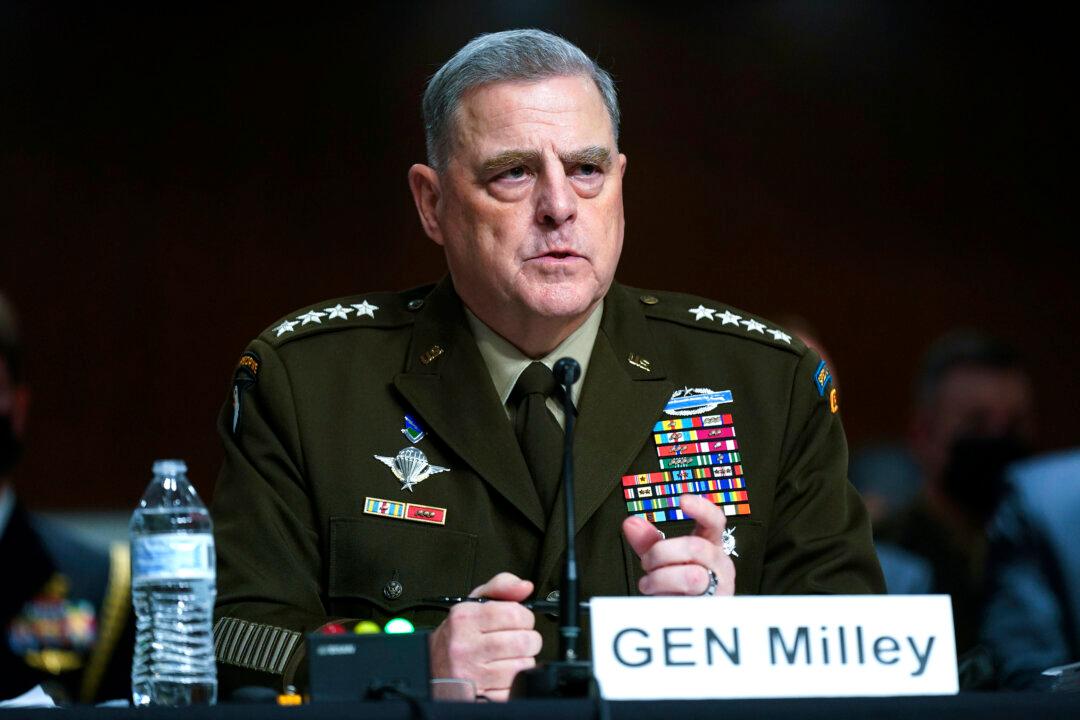Joint Chiefs of Staff Chairman Gen. Mark Milley vigorously defended his two telephone calls on Oct. 30, 2020, and Jan. 8, 2021, to reassure the top leader of China’s People’s Liberation Army (PLA) that then-President Donald Trump had no intention of launching a military attack on Beijing.
“My loyalty to this nation, its people, and the Constitution hasn’t changed and will never change as long as I have a breath to give,” Milley told the Senate Armed Services Committee in an opening statement addressing the widespread criticism he received following a report on the two calls prompted by a story by The Washington Post citing an excerpt from “Peril,” a book published earlier this month by authors Bob Woodward and Robert Costa.





